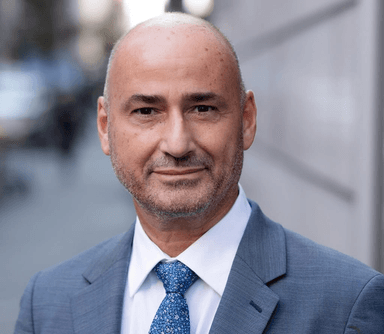Dental Bridges in Midtown and Flushing
Restore your smile with custom dental bridges at Parsons Smile Center in Midtown and Flushing. Fill gaps, prevent shifting, and regain your confident smile.
Restore Your Smile with Dental Bridges
Dr. Salha's Midtown and Flushing office can help with any level of restoration. A dental bridge may be called for when a single crown won't quite do the trick, or if bone loss prevents an implant. Bridges may also be indicated along with implants in some cases where multiple teeth are missing or damaged, but dentures are not needed.
Missing teeth can significantly impact your confidence, oral health, and quality of life. Whether you've lost teeth due to injury, decay, or gum disease, dental bridges offer an excellent solution to restore both function and aesthetics to your smile.
Did You Know? Dental bridges can last 10-15 years or more with proper care, making them a durable and cost-effective tooth replacement option.
What Is a Dental Bridge?
A dental bridge at our Midtown and Flushing office is a permanent fixture that can replace one or more missing teeth. Each dental bridge includes a prosthetic tooth or teeth plus a dental crown on either end to anchor it. Those crowns may be supported by your natural teeth, or they may be cemented or screwed to implants.
This innovative treatment creates a literal "bridge" across the gap left by missing teeth, seamlessly integrating with your natural smile for optimal function and appearance.
The Life-Changing Benefits of Dental Bridges
Your dental bridge will:
- Fill in unsightly gaps left by missing teeth
- Prevent the remaining teeth from shifting and becoming crooked
- Give you a natural-looking and attractive smile
- Alleviate pressure and pain caused by an uneven bite
- Restore youthful and full facial structure
- Improve speech clarity and pronunciation
- Enhance chewing ability for better nutrition and digestion
Immediate Results: Unlike implants that require healing time, bridges can restore your smile's appearance immediately after placement.
Types of Dental Bridges
Traditional Bridges
The most common type, supported by crowns on adjacent natural teeth. Ideal when you have healthy teeth on both sides of the gap.
Cantilever Bridges
Used when there's only one adjacent tooth to support the bridge. Less common but effective in specific situations.
Implant-Supported Bridges
When multiple teeth are missing, implants can support the bridge instead of natural teeth, preserving healthy tooth structure.
Tooth-Colored Bridges: Natural Beauty Restored
Your dental bridge will be made with beautiful dental crowns and replacement teeth that will make you feel proud of your smile. You will be able to bite and chew without discomfort.
Using advanced ceramic materials and precise color matching, Dr. Salha ensures your bridge blends seamlessly with your natural teeth. The result is a restoration that's virtually indistinguishable from your original smile.
How to Care for Your Dental Bridge
Easy-peasy! If you're taking good care of your teeth by brushing, flossing, and getting regular professional cleanings, then you're also taking good care of your bridge.
Essential Care Tips:
- Brush twice daily with fluoride toothpaste
- Floss daily using special bridge floss or water flossers
- Use antibacterial mouthwash to prevent gum disease
- Avoid hard foods that could damage the bridge
- Schedule regular checkups every six months
- Don't use teeth as tools to avoid unnecessary stress
Important: Proper oral hygiene is crucial for bridge longevity. Poor care can lead to decay in supporting teeth or gum disease.
Frequently Asked Questions
How long do dental bridges last?
With proper care, dental bridges typically last 10-15 years. Some patients enjoy their bridges for even longer with excellent oral hygiene and regular dental visits.
Is the bridge procedure painful?
Dr. Salha uses local anesthesia and advanced techniques to ensure your comfort. Most patients experience minimal discomfort during and after the procedure.
How much do dental bridges cost?
Bridge costs vary depending on the type of bridge, materials used, and number of teeth being replaced. Dr. Salha will provide a detailed treatment plan during your consultation.
Can I eat normally with a dental bridge?
Yes! Once you adjust to your new bridge (usually within a few days), you can eat most foods normally. We recommend avoiding very hard or sticky foods.
What's the difference between a bridge and an implant?
Bridges are faster to complete and generally less expensive upfront, while implants preserve bone health and don't affect adjacent teeth. Dr. Salha will help you choose the best option for your situation.
Will my insurance cover a dental bridge?
Many insurance plans provide partial coverage for bridges as they're considered a necessary restorative treatment. We'll help you understand your benefits and maximize your coverage.
Dr. Salha's superpower is focusing exclusively on you when you're in the treatment chair to create a truly comfortable and connected dental experience. Get in touch with us today to see how we can help you with a dental bridge in Midtown and Flushing that will restore your confidence and transform your smile.
